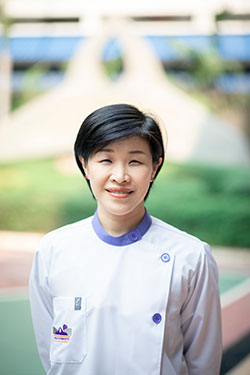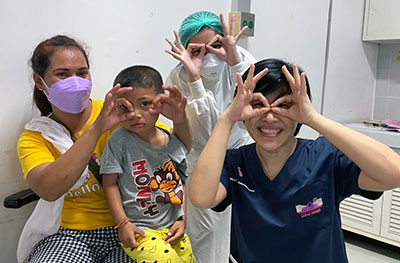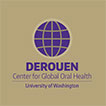
Sawadee Ka, I am from Khon Kaen University (KKU) in the Northeastern region, “I-San”, of Thailand. In 2008, I was back from the University College London, UK, after pursuing my PhD in Developmental Biology focusing on the cleft formation. At KKU, I am a senior lecturer of the Division of Pediatric Dentistry, Faculty of Dentistry, where I am responsible for teaching dental students and providing care for children in our Dental Hospital. One of the burdens I was facing at that time, was giving emergency dental treatment for children with cleft lip and palate. Prevalence of children born with orofacial clefts in I-San is the highest among other regions in Thailand. The KKU Center of Cleft Lip Cleft Palate and Craniofacial Deformity was established in the year 2000, to systematically tackle this health issue by an interdisciplinary team. These children were mostly from underprivileged family backgrounds. The limited access to appropriate oral health care has reflected in severe and untreated dental caries since they were in the preschool age. Their complicated congenital craniofacial deformities that greatly affected feeding and appearance had taken all the attention from the family, therefore brushing the child’s teeth was usually the last thing in their mind. We soon realized that increasing the family awareness on maintaining good oral health and providing access to dental care should be incorporated as part of the cleft treatment protocol.

After joining the KKU Cleft Center in 2010, I led a social service project entitled “Big Smile, Bright Teeth” to improve the oral health status in children with clefts. A holistic approach was implemented by creating a fast track for regular dental examination and treatment, at the time when patients attending the Center for other healthcare, such as speech training. The significance of good oral health and instruction for oral care at home was given to the parents, via empowerment group activities, at early stage and regularly in the cleft protocol. Dental students both undergraduate and postgraduate had volunteered to help providing dental treatment for these children, in which they also learn to work with the special needs, their families and with the interdisciplinary professionals. It had been a pleasant experience for these future dentists and the young specialists. I hope that they would carry on working with children with special needs in the future. Ten years on in the project, we have clearly seen the reduction of untreated caries in our preschool children.
As my background was mainly involved molecular biology, I had gained some valuable experience in research in dental public health via a workshop in 2010, supported by NIH Fogarty Funding, entitled “International Workshop on Clinical Research Methods in Oral Health”. This is a part of the jointed training program organized by KKU Faculty of Dentistry, Thammasat University Faculty of Dentistry, and University of Washington School of Dentistry. Following the workshop, I had been recruited in a few clinical research teams funded by NIH. All of these give me the courage to take on clinical research in children with cleft lip and palate, alongside with improving the sustainability for oral health care for them. We are now setting up a network with local primary care centers around the I-San as well as become part of a Global Task Force “Cleft without Caries”. This is my small journey and I enjoy it very much!
